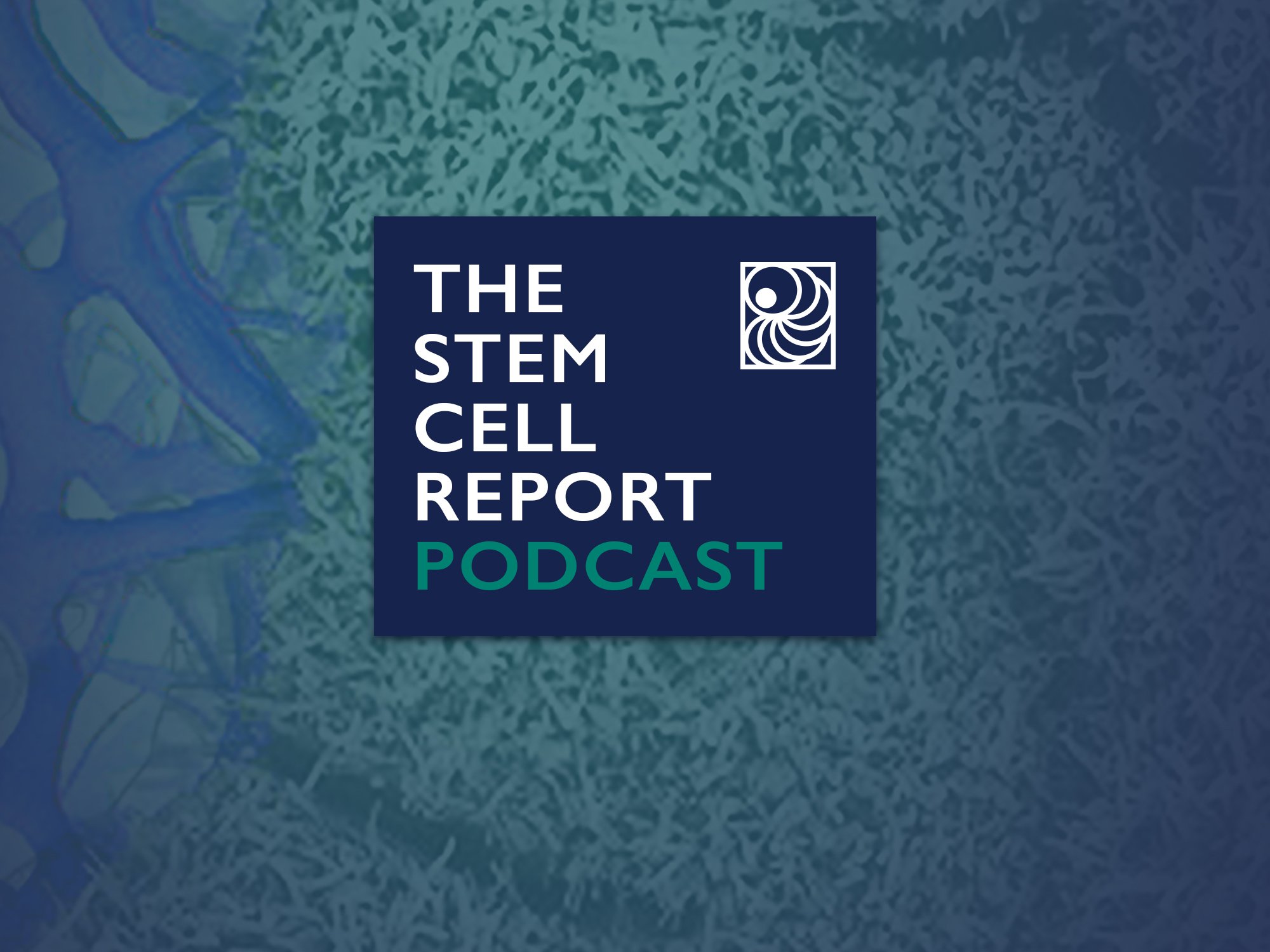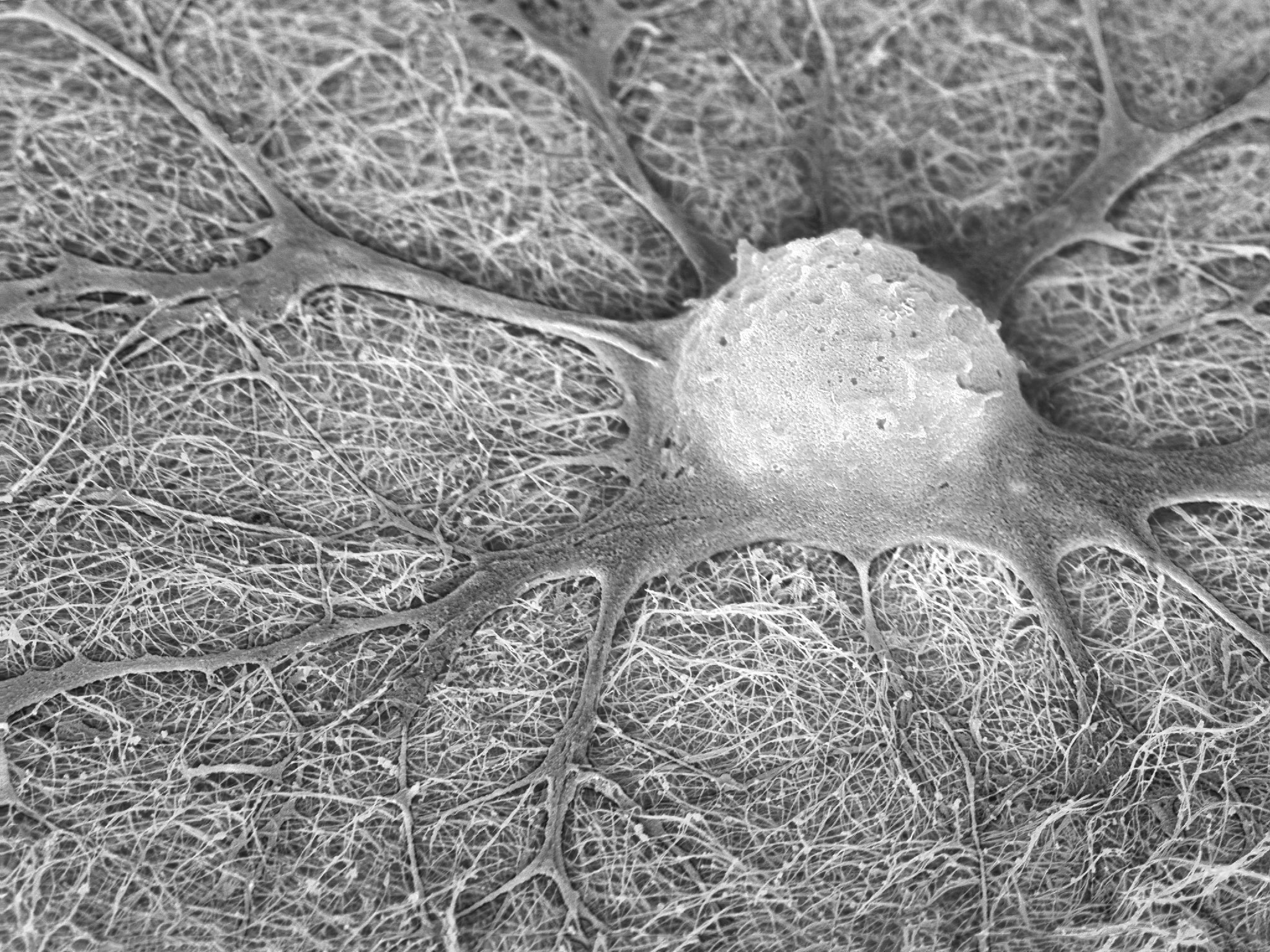ISSCR News

New Podcast Episode. Cancer Neuroscience, Tumor Organoids, and Understanding the Role of the Nervous System in Human Glioblastoma
The role of neuronal influences on cancer pathogenesis and progression is increasingly appreciated in the nervous system. Neurons have been shown to enhance the proliferation and migration of gliomas, a glial-derived tumor of the CNS, via diffusible paracrine factors or synaptic inputs onto tumor cells. In glioblastomas, a highly aggressive glioma, mostly glutamatergic inputs have been identified. While the potential for glioblastomas to receive projections from neurons of other neurotransmitter subtypes, such as from cholinergic neurons, has recently been discovered in xenotransplantation models, whether synapses can form between human cholinergic neurons and glioblastoma cells and consequences of these inputs and other non-synaptic mechanisms are still unknown.
Human induced pluripotent stem cell-based models have been emerging as a powerful platform for studying human-specific disease mechanisms. Today’s guests developed a co-culture model for the study of neuron-tumor interactions by combining patient derived glioblastoma organoids and hiPSC-derived cholinergic neurons. They will discuss their recent findings and what it means for understanding and potentially treating a tumor for which there is no known cure.

Member Spotlight: Ru Gunawardane, PhD
I was always interested in understanding how cells go wrong in disease and I was excited by the ability to use iPSCs to really get at how "normal" cells make decisions about cell fate and function.

New Podcast Episode. Stem Cells in Space: Muscle Regeneration in Microgravity
Skeletal muscle is one of the most abundant tissues in the human body, representing approximately 40% of body weight. Under certain circumstances, skeletal muscle can be regenerated through satellite cells, a reservoir of quiescent muscle stem cells, that can be activated with injury or in certain diseases and give rise to newly formed multi-nucleated myotubes and myofibers. However, the regenerative potential of muscle is diminished or is completely absent in the course of normal aging, certain diseases, and space travel. For example, time spent in microgravity can have a profound impact on human physiology, especially the muscular system, as astronauts lose up to 20% of their lean muscle mass and up to half of their strength.
The identification of countermeasures against the effects of muscle regeneration, including microgravity, is an increasing priority for an aging population and continued space travel. Experiments in microgravity, conducted on the International Space Station, offer a unique opportunity to understand muscle regeneration and the effects of microgravity. Our guests today will discuss muscle regeneration, their muscle-on-a-chip platform that mimics salient aspects of impaired muscle regeneration, and the feasibility of drug screening in microgravity.

Member Spotlight: Uta Grieshammer, PhD
ISSCR creates very useful content, such as guidelines, standards, webinars, and I value having access to that.

ISSCR Remembers Pete Coffey
The global stem cell community mourns the loss of Professor Pete Coffey, a world-renowned eye researcher. Professor Coffey pioneered regenerative treatments for vision loss, including the landmark London Project to Cure Blindness, and authored key studies demonstrating the potential of stem cell-derived therapies for age-related macular degeneration. His groundbreaking 2018 clinical study, published in Nature Biotechnology, provided the first convincing evidence of restored vision using a transplanted pluripotent stem cell product. Widely recognized for his contributions, he received numerous awards, including the CIRM Leadership Award and the Robertson Stem Cell Prize. Professor Coffey passed away last week following a long illness. Dr. Coffey was an active ISSCR member contributing to advocacy efforts on behalf of the field and presenting his work at ISSCR meetings.

Receive ISSCR Press Releases
Sign up be a part of ISSCR’s media list. Media Contact: Kym Kilbourne, Director of Media and Strategic Communications
Subscribe to ISSCR News.
Each month, ISSCR delivers scientific, policy, and community to your inbox .
